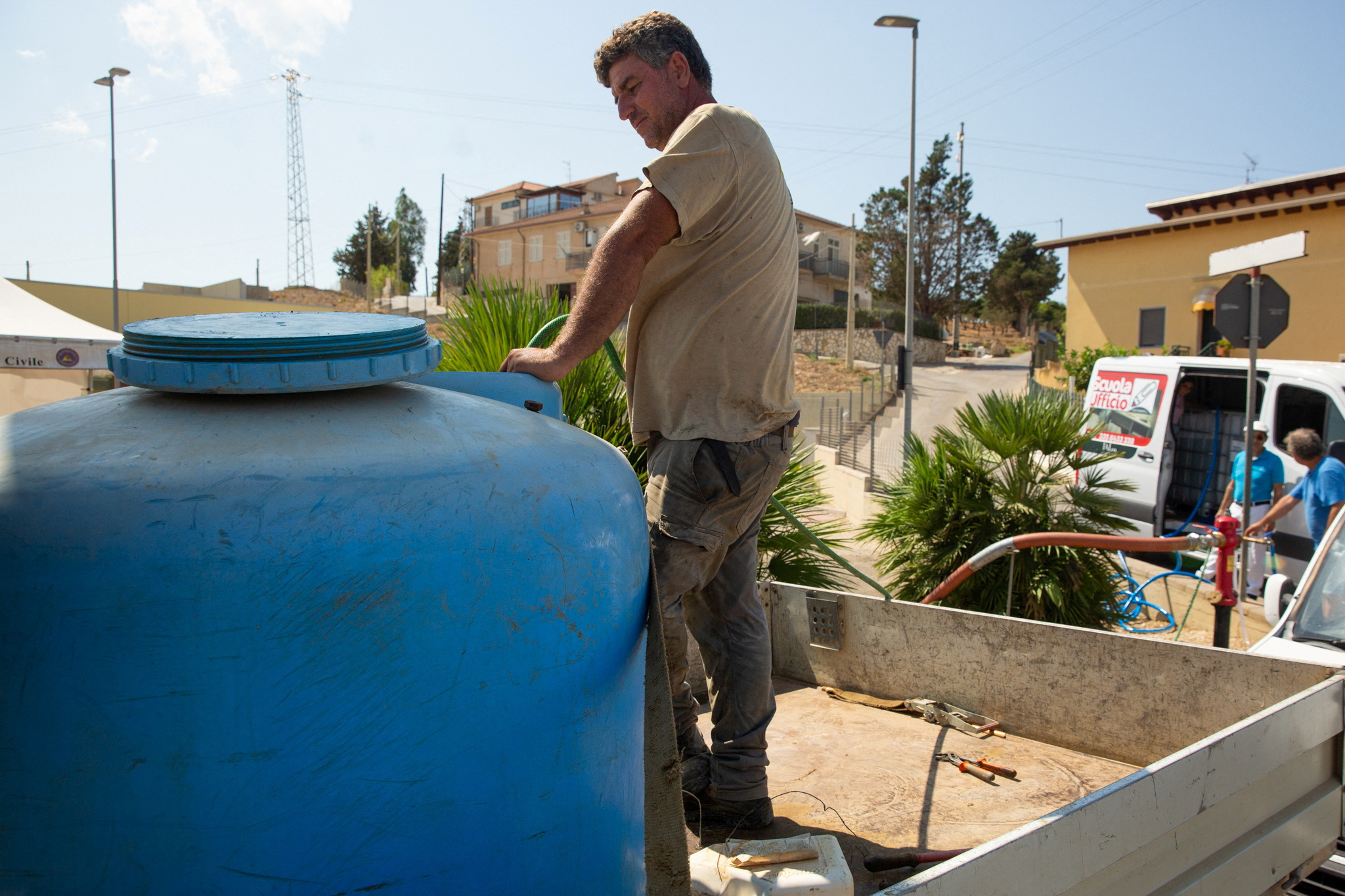pctay123
Publish Date: Tue, 27 Aug 2024, 06:16 AM

- Some residents without water for two months
- Rainfall well below average for four years
- Supply from tankers can cost 300 euros per month
CALTANISSETTA, Italy, Aug 27 (Reuters) - A drought on the Italian island of Sicily has become so severe that many residents of the city of Caltanissetta have been without running water for two months, leading to handsome profits for unauthorised private sellers.
In a situation more readily associated with a developing country than an advanced European economy, thousands of Sicilians are getting their water from individuals and groups who distribute it from self-operated tanker trucks at inflated prices.
After four years of rainfall well below the historical average, the Italian government declared a state of emergency in May to try to better manage resources until the autumn rainy season, but since then things have only got worse.
Water is rationed in dozens of central Sicilian towns, leaving citizens to rely on supplies from tankers that can cost families and businesses an average of 300 euros ($333) per month.
"Every 15 or 20 days I have to call water trucks to fill the tanks I have at home," said Alberto Micciche, who lives in the Poggio Fiorito district on the outskirts of Caltanissetta.
The cost of an 8,000-litre truckload has doubled from a year ago to about 100 euros, Micciche said. He then has the additional cost of electricity to pump the water from the tanks to his kitchen or bathroom.
"Just turning on a tap is expensive," he said.
In the rest of Caltanissetta the authorities ensure regular water supplies for just a few hours per week or every two weeks, depending on the neighbourhood.
Chronic water shortages are nothing new to Sicilians, many of whom have storage tanks on their roofs or underground to face periods of scarcity, but these are proving insufficient as droughts become longer and more severe.
'LIKE BEING BLACKMAILED'
Businesses requiring a constant supply of drinking water, such as restaurants, are exasperated as demand outstrips supply and prices soar.
"Many tanker owners know we are in trouble and are taking advantage of the situation, it's like being blackmailed," said Michele Tornatore, who owns a restaurant called 'Sale e Pepe' (salt and pepper) in Caltanissetta.
"If the tankers can get water, then why is there no water?" he said.
Officially, water is considered a public good and cannot be sold by individuals, who can have private wells strictly for personal use.
Only authorized private tankers can distribute water they have drawn from public sources, charging a transportation fee. To do so, they must themselves pay a tariff to the local official water company.
However, the rules are routinely flouted, with potential risks to public health. Many tankers are not registered and operate without oversight or regulation, delivering water from uncontrolled sources and uncertain quality.
Authorities in several Sicilian cities have fined people thousands of euros this year for unauthorised distribution and the selling of contaminated water.
Salvatore Cocina, the director of Sicily's civil protection department, said the island was seeking new water sources and repairing abandoned wells, but the situation was so critical that in exceptional cases city mayors should use their powers to temporarily seize private wells.
"As in the case of the COVID-19 emergency, everyone will have to do their part," he told Reuters.
Oscar Aiello, a member of Caltanissetta's city council, is using the carrot rather than the stick by trying to persuade well owners to share their precious water voluntarily. He posted on Facebook this month that their generosity "would be rewarded".
($1 = 0.8998 euros)
Sign up here.
https://www.reuters.com/world/europe/water-profiteers-thrive-sicily-drought-intensifies-2024-08-27/












